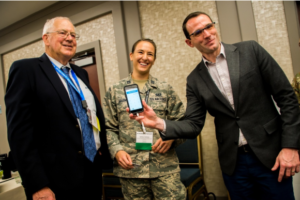
Following self-reported success and positive industry feedback from the first-ever Space Pitch Day, the Air Force is already planning to annually meet with selected small businesses to find more innovative capabilities in the space domain, officials said Nov. 6. The Air Force awarded Small Business Innovation Research (SBIR) contracts worth $750,000 each to 30 companies over the two-day event in San Francisco, for a cumulative $22.5 million. Service evaluators then selected 15 companies to submit proposals for an additional $750,000,…

 By
By 











